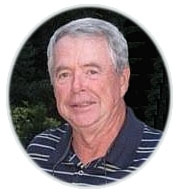August 28, 2020
No one holds the First Tee accountable for advancing golf into hardscrabble neighborhoods. Some chapters support the underserved; there are a few feel-good, soulful, restorative testimonials about Black kids rising up in character and golf skills because of the First Tee, now called the PGA Tour First Tee.
The diffusion of the First Tee creates illusions, their Annual Report is glowing and reflects the soul of their work but is it possible to accurately judge how their reach dives into the neighborhoods most in need of the life transformations their program delivers? It is about reach, and that mission is urgent, and perhaps the African American Golfer’s Digest is the right vehicle on the right road.
Tim Finchem created the First Tee in 1997 to focus on using golf as a developmental sport for underprivileged kids from rough neighborhoods. It was about municipal courses near inner-city neighborhoods. Golf was not only unpopular among kids who lived near these courses, it was strange and foreign.
The First Tee gave kids access to golf and provided a comfortable space where they felt comfortable and accepted within their surroundings. They began learning life skills and building their inner strength, confidence, and resilience.
Now, the First Tee’s mission is “Growing the Game.” Something is wrong when the First Tee reverts to a vanilla message when so much is at stake with underserved Black American youth during this turbulent time. The First Tee reports raw numbers and some anecdotal feel-good stories in their annual reports, but accountability is missing. There is no doubt the First Tee is doing the right thing for kids they serve, there is doubt however on the priority to expand and support underserved metropolitan areas with large African American populations.
When First Tee CEO Greg McLaughlin believes that “Our character is a compass, and it is the source of our words, thoughts and actions” and “strong character stands against injustice”, it should ignite action within the Black American golf community. Now is the moment to gather resources and will to advance a level playing field for Black kids and players.
These initiatives should be considered:
- The width and depth of Black involvement in First Tee chapters, courses, and youth centers should be understood as a natural team that should be recognized as a voice for the underserved in the US and in particular the south, where nearly 58 percent of the Black population lives. In all, roughly 48 percent of current First Tee members are minorities; about 25 percent are Black. The number is lower at First Tee facilities with a direct tie to a golf clubs or public golf courses – about 15 percent.
- An understanding and participation with the Advocates Pro Golf Association Foundation as a partner to assure that the initiatives they support such as helping improve the health, wellness, and career choices of young people, especially those of underrepresented diverse backgrounds.
- A program to help new Black chapters, and new course programs. First Tee greenfield locations should be evaluated.
- An Advisory Board consisting of strong and visible African American official (and unofficial) spokespeople seeking to speak truth to power, to assure that their voice is timely and fact-based.
- Consider engaging the disabled community through discussion on how both communities can unite and find common ground as a political force. Golf’s governing bodies are not moving their interest and money to advance the Black and disabled populations into golf access and adaptive programs. The USGA has defunded their public-facing grant requests website (accessgolf.org) that was the conduit to 501(c)(3) programs across the country that help the disabled. They have, however, continued to fundraise for the disabled in their direct mail campaign.
The First Tee is well-embedded and sponsored. They have about 150 chapters that are unique in what they do and who they serve consistent with First Tee structure and governance. This adaptation creates a myriad of solutions based on Chapter leadership, local needs, and culture. The support from leaders in industry, politics, sports and golf is world-class.
Properly positioned the Black and disabled communities are ready to speak with one voice. All that is needed is the will to ask: Why does First Tee exclude so many that would benefit from the game? Why aren’t they meeting with Black leaders and those representing the disabled?
It will take all our institutions to stand up for our values.
We are all in this together. We can find the will to help everyone play golf?
Email me your comments on this opinion article. I am interested to know your thoughts and/or suggestions.
Bob Thibodeau is Veterans Outreach Director at Adaptive Golf Association and resides in Atlanta, Ga.
Editors Note: The views and opinions expressed in this publication are those of the authors. They do not purport to reflect the opinions or views of the African American Golfer’s Digest or its members.


 By
By 